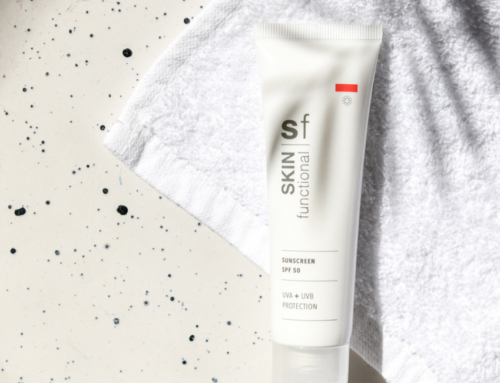Top 6 Common Myths & Truths About Premature Ageing
There are many, many skincare products and lifestyle habits that promise the fountain of youth. But the world of anti-ageing can be complex, and as a result, is chock-full of rumours and misinformation. We’re here to help decipher the facts from fiction with a few of the most common myths and truths about premature ageing.
Myth #1: The damage is done by 18
False. There’s a common misconception that skincare damage is done by the age of 18, after which we switch to reversing the damage, rather than preventing it. However, our skin is actually even more vulnerable as we age, so be sure to balance your anti-ageing skincare routine with a high factor sunscreen that offers protection from the sun’s harmful UVA and UVB rays. This will help prevent premature ageing signs (link to “Everything you need to know” blog post) such as wrinkles, fine lines and age spots.
Myth #2: The more you exfoliate, the better
False. Exfoliating your skin removes dead skin cells and makes way for a new, fresh layer of skin. But there is such a thing as over-exfoliating, which can irritate and dry out the skin. Aim to use an exfoliating skincare product suited for your skin type once a week.
Myth #3: You should use retinol daily
True – but not in the beginning. Retinol is a star anti-aging ingredient (link to “Premature Ageing Ingredients & Treatments” blog post) that not only exfoliates to reveal smoother skin beneath, but it also increases collagen production. You’ll need to use it sparingly at first (once or twice a week), as introducing a retinoid product too quickly an create a retinoid effect which presents as red, sensitive, itching of flaking skin. Over time, your skin can tolerate products with a higher retinol amount, and eventually most people can use it every day. However, keep in mind that how frequently you use retinol also depends on what kind of product you’re using, how sensitive your skin is, and what percentage of retinol you’re using. No matter how often you’re using retinol, it’s important to apply it in the evenings only, and use plenty of sunscreen during the day, since your skin can become more sensitive to sunlight while using it.
Myth #4: 8 glasses of water a day prevents wrinkles
It’s complicated. While drinking water does improve your skin and offers a host of other health benefits for your body, it’s not necessarily going to help get rid of wrinkles or plump up your skin, unless you are extremely dehydrated.
The skin is one mighty organ, and is made up of water-retaining cells and elements that, without adequate H2O, may become dehydrated. However, there’s no guarantee that the water you’re drinking is actually being delivered to your skin. This is why you should introduce hyaluronic acid to your skincare routine, which attracts water molecules and can retain up to 1000 times its weight in water. Hyaluronic acid helps support skin hydration from the outside, while drinking water daily supports general healthy cell renewal from the inside. It’s a winning combination for hydrated, glowing skin.
Myth #5: You only need to wear sunscreen outdoors or on hot sunny days
False. Your skin is at risk for sun damage even on a cloudy or overcast day, and whether you’re indoors or out, because up to 80% of the sun’s harmful ultraviolet light can pass through clouds and fog, and even glass. Sunscreen with an SPF of at least 30+ should be worn 365 days of the year, to minimise your risk of sun damage and premature wrinkles.
Myth #6: The more product you apply, the better the results
False. You can actually have too much of a good thing – especially when it comes to anti-ageing skincare products. Slathering on extra serum or moisturiser doesn’t translate to more improvement in your skin. Consistency is key when trying to address skin concerns. Always follow each individual product’s recommended application and instructions for the best results.




